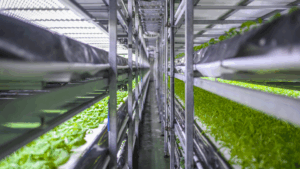Table of Contents
ToggleA New Era for Global Agriculture
Global food security challenges are reshaping how and where the world invests in agriculture. Rising populations, climate volatility, and increasing demand for sustainable food production have exposed vulnerabilities in traditional agricultural powerhouses. Investors are now looking beyond the familiar farmlands of North America and Europe. A new frontier has emerged: equatorial nations.
These regions—stretching across South America, Africa, and Southeast Asia—possess unique climatic, geographic, and demographic advantages that position them as the world’s next agribusiness growth engines. For investors seeking long-term, resilient opportunities, equatorial agriculture is more than just promising—it is essential.
The Strategic Advantage of Equatorial Nations
1. Year-Round Cultivation
Unlike temperate zones, equatorial countries benefit from consistent sunlight and relatively stable temperatures. This creates the possibility of multiple cropping cycles per year, dramatically increasing yields. For crops like rice, maize, and soy, this means equatorial nations can outperform seasonal producers in both volume and efficiency.
2. Untapped Arable Land
According to the World Bank, much of the world’s remaining uncultivated but arable land lies within equatorial regions. Countries like Suriname, Brazil, and the Democratic Republic of Congo host vast expanses of fertile soil. Unlike overexploited farmlands in developed economies, these lands are still underutilized, offering investors a chance to build scalable, sustainable agribusiness operations from the ground up.
3. Access to Water Resources
Equatorial zones often benefit from abundant rainfall and river systems that support irrigation. With global drought conditions threatening food systems elsewhere, regions with natural water security hold a critical competitive edge. Investment in modern irrigation technologies amplifies this advantage, ensuring year-round productivity and climate resilience.
Rising Global Demand for Equatorial Crops
The global food market is experiencing unprecedented growth. By 2050, the world’s population will surpass 9.7 billion, requiring agricultural output to increase by at least 60%. Much of this demand will come from emerging markets close to the equator, where urbanization and rising incomes are accelerating dietary shifts toward protein, grains, and fresh produce.
Equatorial nations are uniquely positioned to meet this demand—not only for domestic consumption but also for export. Access to Atlantic and Pacific trade routes gives producers in South America and West Africa direct pathways to North America, Europe, and Asia, reducing supply chain costs and time-to-market.
The Sustainability Imperative
Sustainability is no longer optional—it is a requirement for modern agribusiness investment. Equatorial agriculture offers unique opportunities for green farming innovations:
- Agroforestry systems that integrate crops with forest cover, enhancing biodiversity while producing exportable commodities.
- Solar-powered irrigation and low-emission mechanization, supported by abundant sunlight.
- Carbon credit opportunities, as investors can generate returns not only from crop yields but also from measurable climate benefits.
By aligning profitability with sustainability, equatorial agribusiness becomes an attractive asset class for impact investors and institutions seeking both financial and environmental returns.
Case in Point: Suriname’s Agribusiness Transformation
Suriname, a small but strategically located equatorial nation, is rapidly becoming a hub for sustainable agribusiness. Through partnerships with forward-thinking companies, Suriname is developing large-scale projects in rice, cassava, and high-value crops under modern, export-oriented systems.
What makes Suriname remarkable is not just its fertile land and climate, but its government-backed investment incentives and integration into the Caribbean and Latin American trade corridors. For investors, this means stability, scalability, and access to multiple markets—all from one equatorial base.
Why Investors Cannot Afford to Wait
The shift toward equatorial agriculture is already underway. Institutional investors, sovereign wealth funds, and agribusiness conglomerates are entering partnerships and acquiring land in equatorial regions.
The question for investors today is not whether equatorial agriculture will rise, but who will capture the early-mover advantage. As land prices climb and regulatory frameworks tighten, those who act now will secure the best opportunities. Delayed entry could mean higher costs and reduced margins.
Bottom Billion: Unlocking Equatorial Potential
At Bottom Billion Corporation, we believe that equatorial agriculture is the cornerstone of future global food security and sustainable economic growth. Through our Agrivigor Green Farms initiative, we are building partnerships with equatorial producers like Interfarm NV and Surivit NV in Suriname to establish scalable, modern farming systems that feed both local populations and international markets.
Our approach is built on three pillars:
- Scalability – Large tracts of fertile land and modern mechanization enable multi-crop cycles and export-ready production.
- Sustainability – We integrate agroforestry, water efficiency, and renewable energy into farming systems.
- Investor Value – By aligning with global food demand and sustainability goals, we deliver profitable, resilient opportunities for investors.
Conclusion: The Equatorial Decade Has Arrived
The world is entering a new agricultural era, and equatorial nations are at its center. Their combination of natural resources, market proximity, and sustainability potential make them the most compelling investment frontier in global agribusiness.
Investors who recognize this shift and move decisively will not only capture strong financial returns but also play a pivotal role in solving the global food security crisis.
Call to Action: Invest with Bottom Billion
The future of agriculture is equatorial. The question is—will you be part of it?
At Bottom Billion Corporation, we are opening pathways for investors to participate in transformative agribusiness ventures across equatorial nations. By investing through us, you gain access to carefully vetted projects, sustainable farming innovations, and markets hungry for growth.




